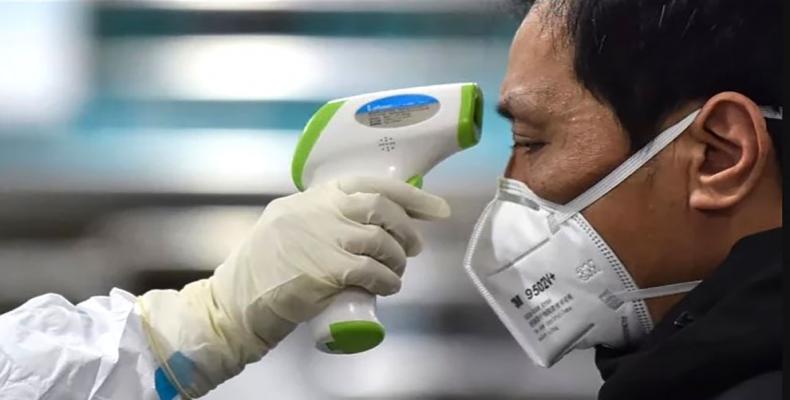The World Health Organization (WHO), has insisted that testing for COVID-19 is the key to containing the spread of the virus.
“The number of people tested for the virus globally is low so while cases are being reported, they are likely understated. Until testing becomes widespread, the world won't truly know how many people are infected,” said WHO Director-General Tedros Adhanom Ghebreyesus.
"The most effective way to prevent infections and save lives, is breaking the chains of transmission. And to do that, you must test and isolate," Tedros Adhanom said at a COVID-19 press briefing, held at the UN health agency's headquarters in Geneva. "Once again, our message is: test, test, test," he stressed.
The WHO has repeatedly decried a lack of urgency on the part of many countries when it comes to testing, isolation and contact tracing -- that is the carefully monitoring of people who are in close contact with someone who has been infected.
In his briefing, Tedros acknowledged the rapid escalation in social distancing measures worldwide, which include many more school closures, the canceling of sporting events and, in some countries, the closure of businesses where people congregate, such as restaurants, bars, cinemas, and theaters.
However, simply following guidelines for personal behavior (such as social distancing, regular hand-washing and coughing into your elbow) are, Tedros said, simply not enough to "extinguish the pandemic."
"You cannot fight a fire blindfolded" he said, underscoring the importance of testing every single case. "We cannot stop this pandemic if we don't know who is infected."
Around 1.5 million testing kits have been sent to 120 countries by the WHO to meet global demand, and the agency says it is working with companies to make them available to those in need.
The WHO chief said many countries have already exceeded their capacity to care for mild cases in health facilities and, if they are in that situation, they should prioritize older patients and those with underlying conditions.
One option for patients with mild symptoms is for them to be isolated and cared for at home, he said. This may put others in the same household at risk, so caregivers should follow WHO guidance on how to provide care as safely as possible.
The patient and caregiver should, for example, wear medical masks when they're in the same room, sleep in separate bedrooms and use a different bathroom; the caregiver should wash hands after any contact with the patient or the patient's immediate environment; and visitors should not be allowed, WHO guidance says. Because patients can still infect others after they stop feeling sick, the measures should continue for at least two weeks after symptoms disappear.
Frequent hand-washing is not only a matter of personal hygiene: it is also, declared Tedros, an act of solidarity, because it reduces the risk that you will infect others, in your community and around the world: "do it for yourself, do it for others," he said.
WHO is also asking people to express their solidarity by not hoarding essential items. Hoarding can create shortages of medicines and other essential products, which can exacerbate suffering.
However, Tedros welcomed the response to the Coronavirus Solidarity Fund, launched by the WHO and partners on Friday. Since then, some 110,000 people have contributed almost $19 million, which will be used to buy diagnostic tests, supplies for health workers and support research and development.
The WHO chief also mentioned the #safehands challenge, an online awareness-raising exercise, encouraging people to share their videos promoting the importance of correct hand-washing, which has been attracting attention from many participants, including celebrities and world leaders.
Meanwhile, at United Nations Headquarters in New York, the Secretary-General's spokesperson, Stphane Dujarric, announced that UN teams are working with authorities around the world, to support Covid-19 national preparedness and response plans.
In many countries, said the spokesperson, UN personnel are providing additional expertise to governments, in areas such as public health, humanitarian and emergency response, as well as community awareness and risk communications.
In Asia, for example, a number of UN bodies are supporting government efforts in areas such as finance and economy, education and water and sanitation, with immediate support to garment factory and migrant workers and a special focus on women.
And in Latin America and the Caribbean, and in Africa, UN communications experts are supporting community awareness and risk communications efforts at a national level.
Source: Malaysia Sun


